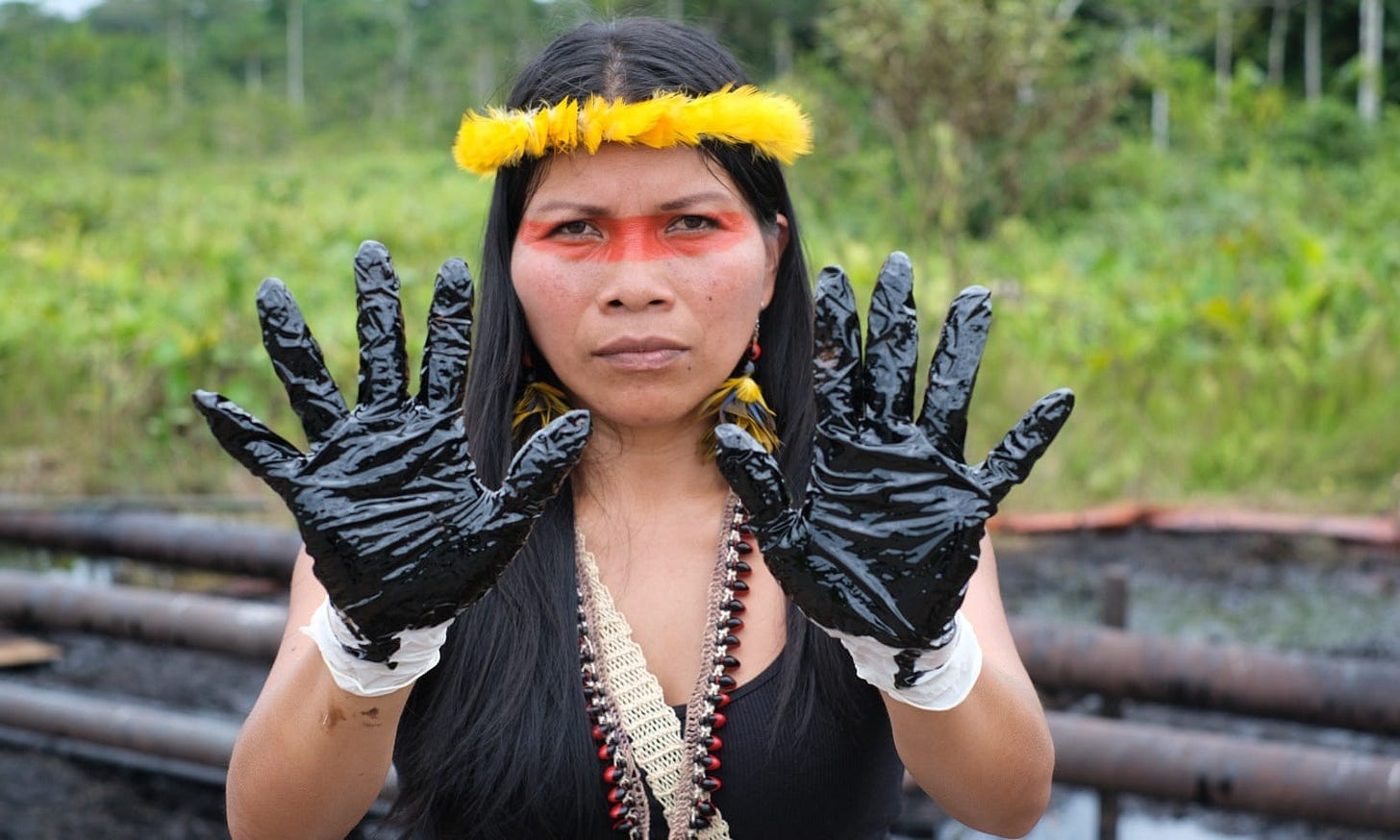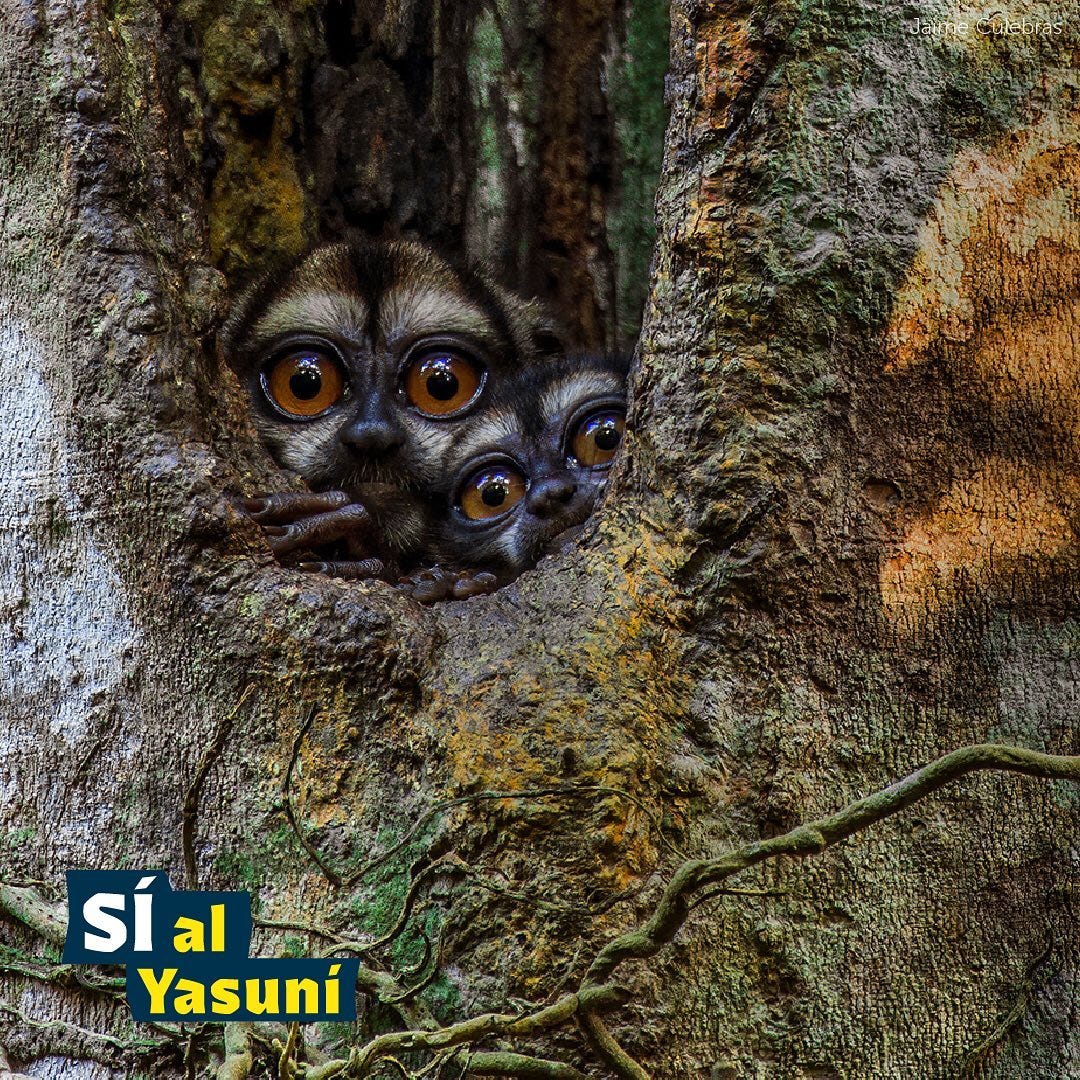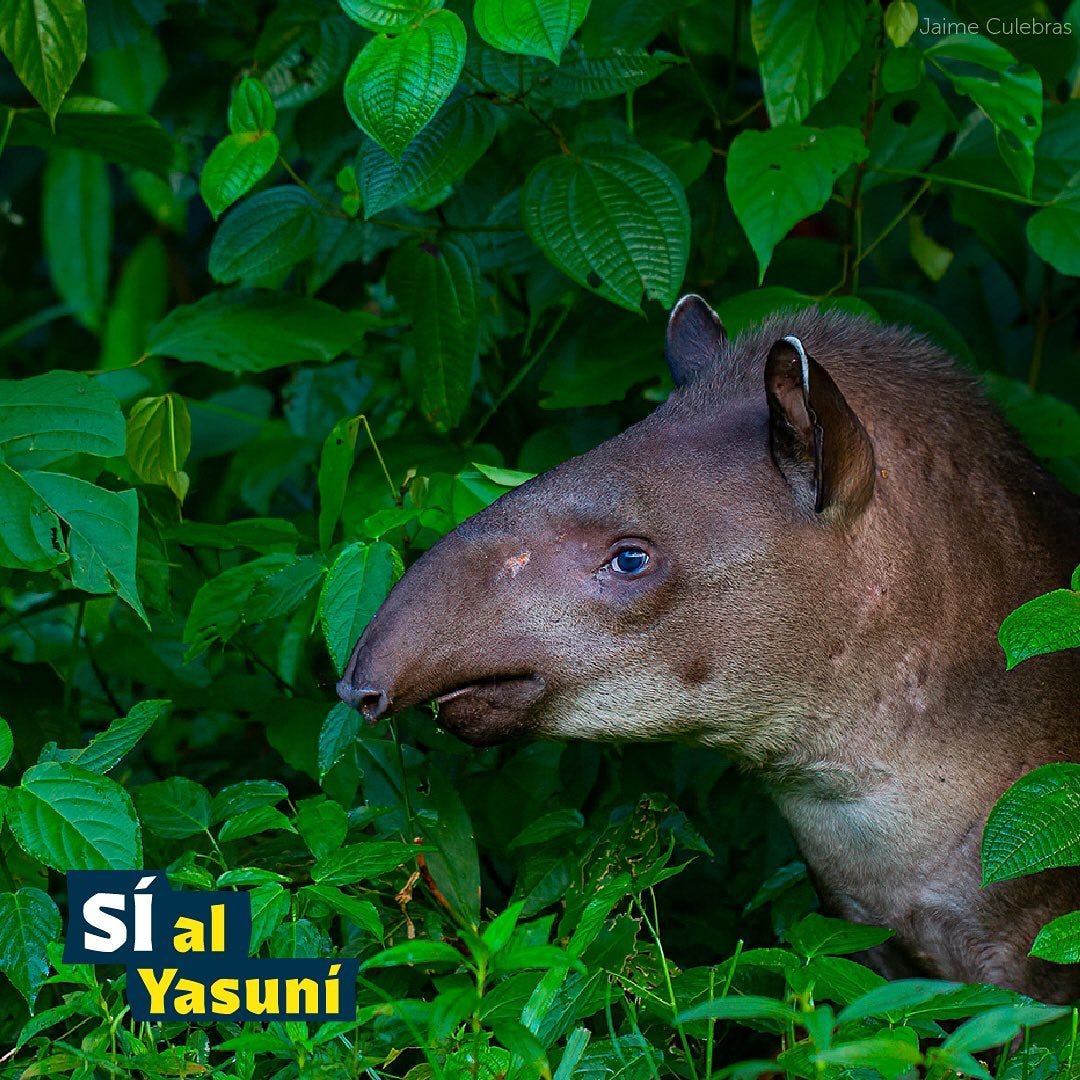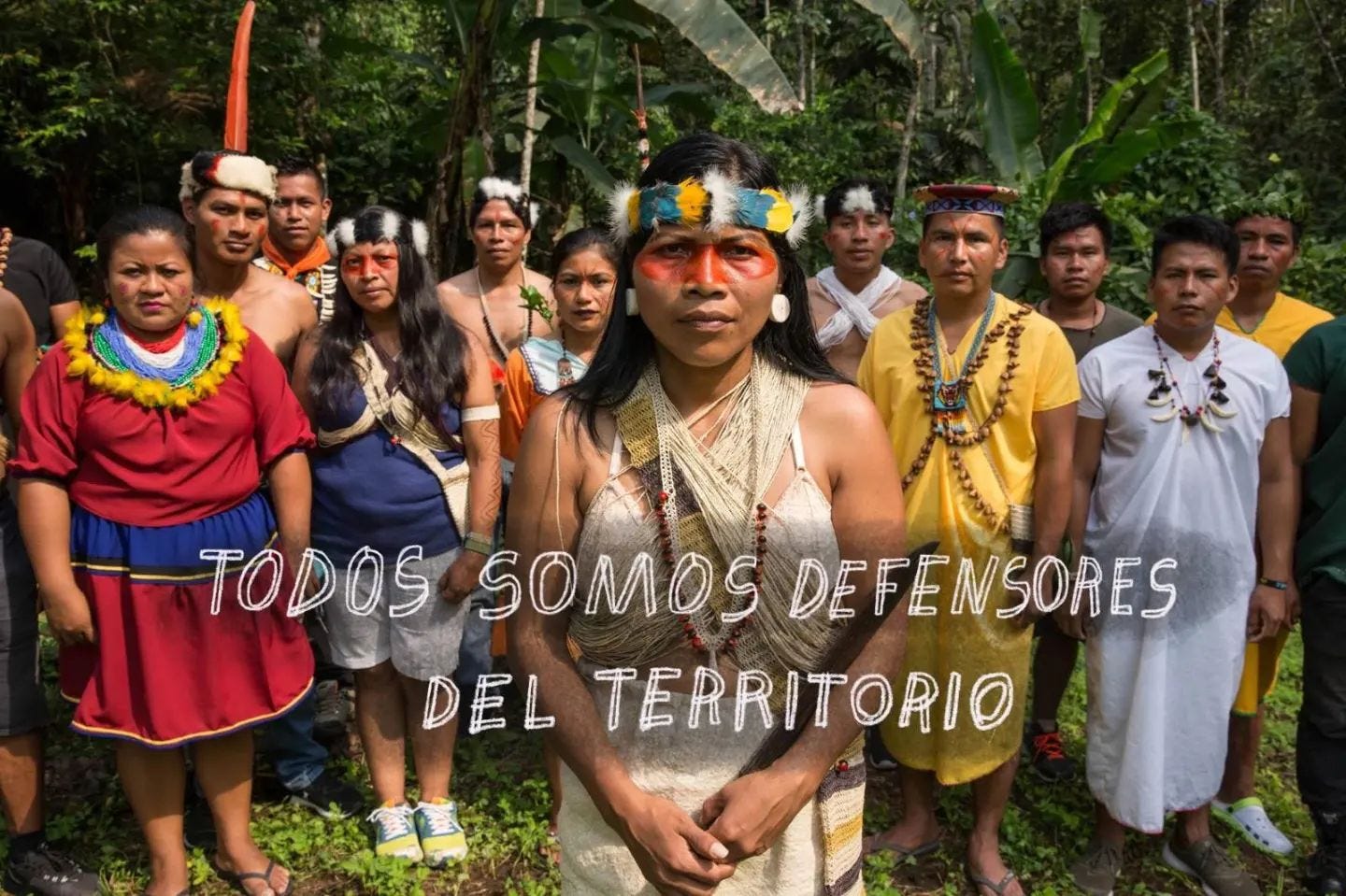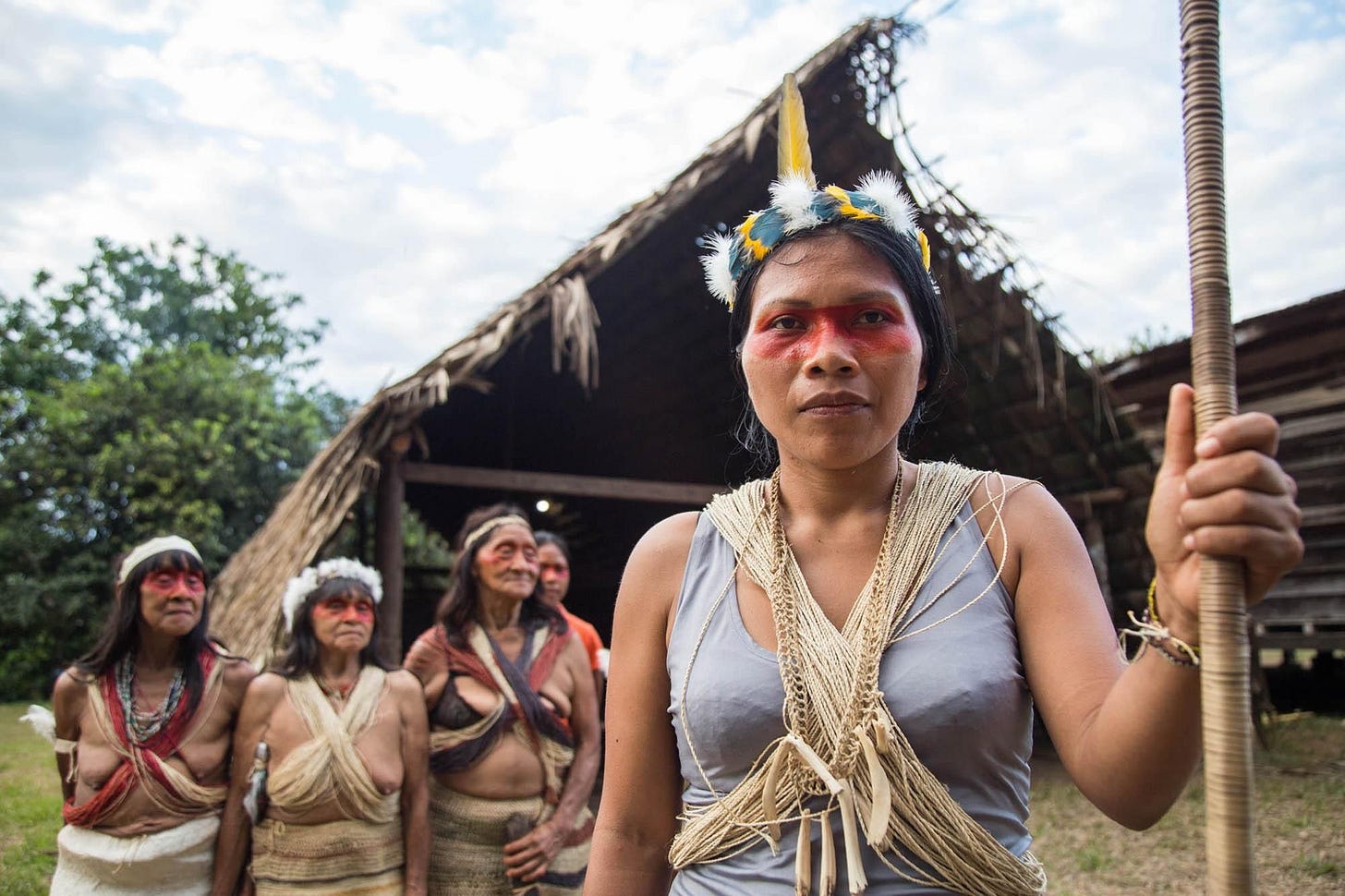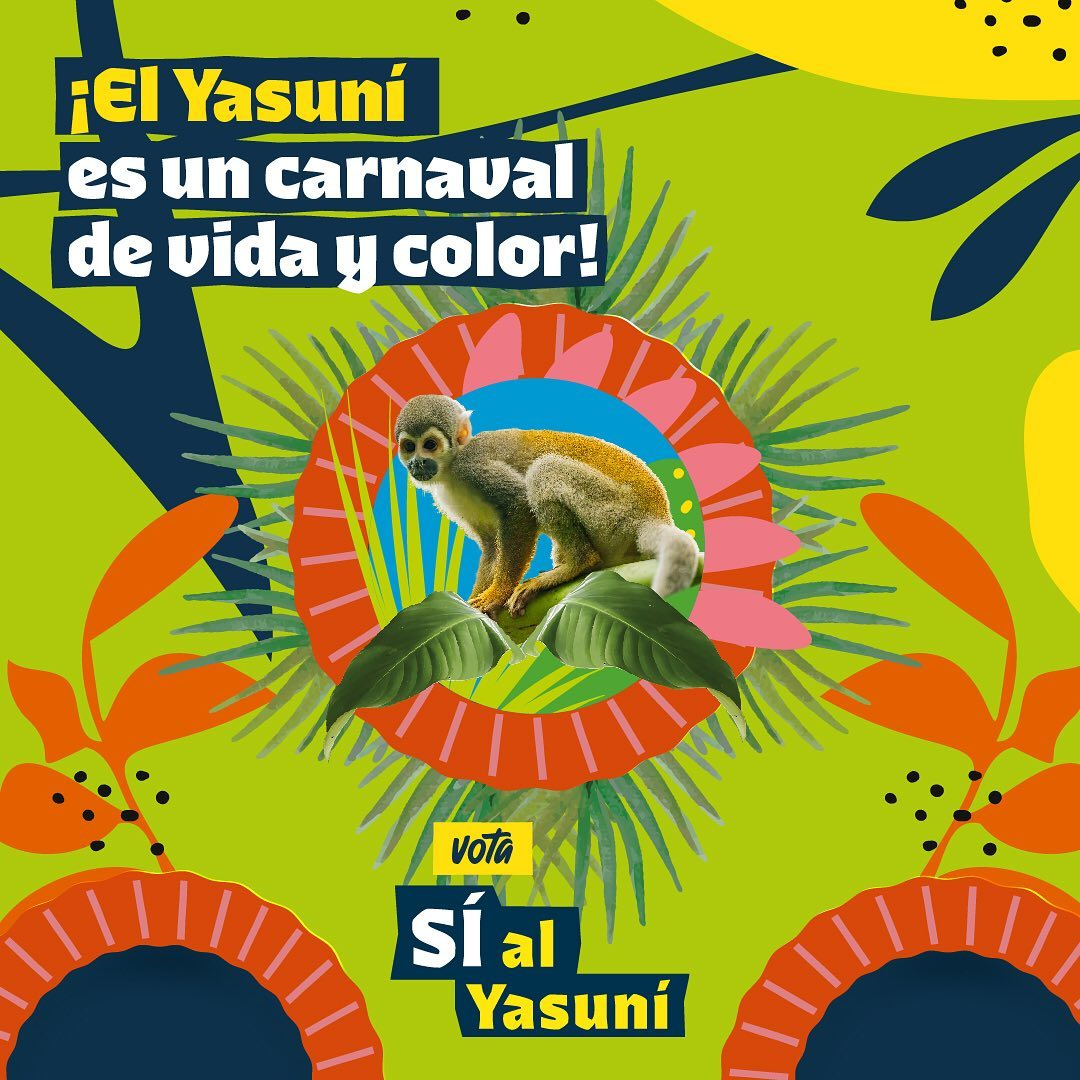Historic referendum to protect world heritage Amazon ecosystem from oil plunder
Yes to Yasuní! Indigenous peoples implore: oil must remain underground 🌱 🌳
Ecuador voters decide on August 20 whether drilling will continue in an oil-rich area of the Amazon. The Yasuní National Forest is one of the most ecologically diverse places on Earth — and is home to the Indigenous Waorani people, who are fighting to protect their community and preserve their way of life.
Referendum on banning oil exploitation from the most biodiverse rainforest on Earth, in Ecuador, a world UNESCO bioreserve. Why would anyone think drilling oil here is moral, legal or sane in the midst of climate catastrophe?
Indigenous, environmental & youth activists rising together: #SiAlYasuni
The Yasuní Biosphere Reserve is one of the areas with the greatest biodiversity per square metre on the planet. 99.73% of the biosphere reserve consists of original natural vegetation. Home to traditional Waorani, Kichwa & Shuar cultures based entirely on the rainforest ecosystem.
Lola Piaguaje, Vice-president of the Confederation of Indigenous Nationalities of the Ecuadorian Amazon:
"We ask all Ecuadorian citizens to say yes to Yasuní, because it is our reserve, our life, where our peoples are, those who are in isolation need to be free, protected and guaranteed those rights, once again, the State has violated our rights, it has violated our rights of nature, that is why we are here speaking out in defense of our rights and in defense of our Mother Earth"
Yasuní is a territory which calls us towards unity. When you arrive in Yasuní, you are simply moved. It is a forest filled with diversity and spiritual beings that many people don’t recognize or see, but as Indigenous peoples, we know them. These spiritual beings do not speak or let themselves be seen, but they are present, guiding us and giving us motivation. In return, we speak up for and fight for them. We connect with them, using the ancestral medicines from our territories.
It is so important now to make ourselves heard, from all across Ecuador and the world, to defend Yasuní and all our territories, taking care of what is left. Extractivism - through mining, oil drilling and logging - may be advancing, but we have the opportunity to significantly challenge industries of devastation.
Now is a time to come together and say loud and clear: Yes to Yasuní, Yes to protecting our lives and ways of life. Saying Yes is an explicit “no” to extractivism and destructive companies. I want to make this call to all Ecuadorians, to people across the world, to support us and uplift our struggles that we carry out from our territories.
If we win, the victory will not just be for Yasuní. It can set a huge precedent at a national and international level, showing what is possible when Indigenous and non-Indigenous peoples come together. A victory for Yasuní can also demonstrate that Indigenous peoples can advance their struggles, manifest their needs, and make clear our visions for territories that are clean and protected, free of pollution or destruction.
Our sacred territories are the inheritance of our grandparents and parents, and as Indigenous youth, we want to pass on that legacy to our children and future generations. We want our medicines and our healthy foods to be here for those who come after us.
That’s why we are here, and that’s why we must unite. We all have legacies to protect and a world to defend.
My name is Nixon and I am an Indigenous photographer, filmmaker and activist from the A’i Cofán nation. Just weeks ago, I joined other Indigenous leaders from across Ecuador, to meet in the forests of Yasuní, the ancestral homeland of the Waorani people. Listen to our messages here.
In unity, Nixon
We must stop the ethnocide of indigenous peoples & protect biodiversity. We are voting to protect the most biodiverse place on the planet. We can set an example to the world by keeping the oil underground & safeguarding the Amazon, our planet’s lungs.
https://sialyasuni.com/en/home/
“If we win, it will be a triumph for Ecuador,” said Hueiya Cahuiya, 46, the founder of the Waorani Women’s Association of the Ecuadorian Amazon who has fought oil drilling in the park since, as a teenager, oil contractors destroyed a sacred burial ground where her grandfather’s remains lay.
“We don’t want any more contamination in our rivers, any more extraction on our land,” she said. “We want a different future.”
TODOS SOMOS DEFENSORES DEL TERRITORIO
The vote on August 20 gives us all the opportunity to be defenders of our territory and our land. For our children, for the future, for our ancestors and for the jaguars, this is a moment to wake up and stop the destruction that Big Oil and corrupt politicians have caused.
On Sunday, the people of Ecuador will vote in a referendum to decide whether or not to destroy my home. I am not speaking of the house that my family and I built by hand, but of the land of my ancestors, the territory and its guardians: the trees, the rivers and jaguars, the people who live there, the soil where my grandmother is buried, the reservoirs of knowledge and medicine, our spirits and those of the forest.
Perhaps you have never heard of the Yasuní national park in the Ecuadorian Amazon. If you were to walk there with me, I could teach you to listen to the wind, to interpret the songs of birds and read the leaves and the bark of trees. But to give you an idea of the place in the language you understand, I’ll tell you that Yasuní, an area of one million hectares, is one of the most biodiverse places on Earth. There are more tree species in a single hectare of Yasuní than across Canada and the United States combined. Yasuní is also the home of the Tagaeri and Taromenane communities: the last two Indigenous peoples living in voluntary isolation in Ecuador.
Can you imagine the immense size of one million hectares? The recent fires in Quebec burned a million hectares of forest. And so the oil industry hopes to burn Yasuní. It has already begun in fact, with the Ishpingo-Tambococha-Tiputini (ITT) oil project on the eastern edge of the park.
The opposition will say that oil brings prosperity, that it provides jobs, salaries and development. But this is a lie. The oil industry is a global leader of false promises. For decades, it has lied about its operations. It has lied about the climate crisis. It has lied about the lives it has destroyed. In the Ecuadorian Amazon, oil companies have brought only death, corruption, contamination and poverty.
And the vote on Sunday will either condemn to death or let Yasuní live. The importance of that alone is more than can be easily grasped. And yet the vote is even more than that: it is a vote on the possibility of limiting greed and plunder in the name of life and respect. It is a vote that will resonate around the planet.
We are hopeful, though cautiously so. If the no vote wins, we will continue to defend the Earth and our territory as we Indigenous peoples always have. In 2019, we successfully protected more than 180,000 hectares from oil drilling in the Waorani Pastaza territory. And if the yes vote wins, we will mobilise to make sure the oil companies stop drilling immediately, and that they leave our sacred forests at the eastern edge of Yasuní. And we will share the experience of this direct action with people all over the world. Now, with the dangers of the climate crisis all around us, the world needs examples of political action that empower people at the grassroots.
Nemonte Nenquimo, co-founder of Ceibo Alliance and Amazon Frontlines, is a Waorani leader who has won the Goldman environmental prize https://www.theguardian.com/commentisfree/2023/aug/18/stop-oil-ecuador-fossil-fuel-democracy
Mañana vota con toda la vida en tu mano.
Vota #SíAlYasuní
Tomorrow, vote for every living thing.
Vote #YesToYasuní




